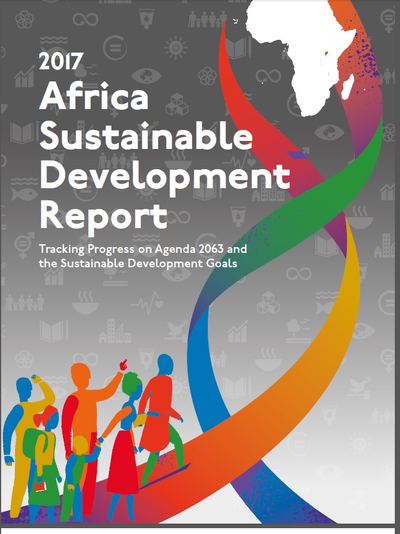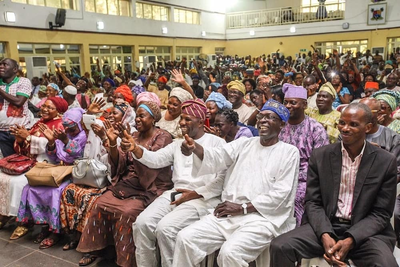By Tunji Olaopa (Published in: http://www.thisdaylive.com/articles/why-do-reforms-fail-a-civil-service-reform-trajectory-for-nigeria/135486/) Why Do Reforms Fail? A Civil Service Reform Trajectory for Nigeria
Most of the rejoinders I received on the two serials preceding this one have demanded that I provide a trajectory of “how to do reform guide” that would be a logical conclusion to my historical analysis of the civil service in Nigeria and tribute to its founding patriarchs. This is not difficult since, one, I have written four books and published many articles on the reform ecology and praxis in Nigeria and beyond; and two, I have equally been involved in reform strategy/ programmes design and implementation in the last two decades. What follows therefore will serve as an effort at popularising some of the ideas and thoughts in my previous scholarly and administrative outputs on the idea of reforming the Nigerian civil service.
In the two previous serials, we examined the contributions of those who made seminal contributions to the evolution, development and reform of the civil service institution in Nigeria. We made two significant but unfortunate assertions that (a) these pioneers saw through the successes of the immediate post-independence civil service and helplessly, to its imminent decline and subsequent decay; and (b) that the inherited institution, at its moments of success, failed to take note of several opportunities for reform and transformation suggested by the pioneers, before it ran headlong into troubled waters at the heart of its current challenges.
From these two critical perspectives, we are then confronted with a compromising template that has consistently undermined the trajectory of civil service reforms in spite of the best and most spirited efforts not only by the pioneers, but also by successive governments in Nigeria. This therefore provokes an imperative question: Why do reforms fail, especially in a third world context like Africa, considered to be one of the most difficult administrative environment in the world? Our best lessons would be learned from an investigation into the local dynamics which confronted the evolution of the civil service in Nigeria.
Nigeria had the good fortune of inheriting a strong and virile civil service legacy from Whitehall. However, to quote R. A. Butler’s graphic analogy, we were just not too sure which direction we wanted the huge administrative Rolls Royce to go in spite of our recognition of its value and function. The pioneers understood this point and waged a losing battle against an encroaching degeneration. Despite the successes recorded by Adebo and the others at the regional civil service, several foundations for decline had already been laid structurally, for reform failure.
What were the danger signals the pioneers saw?
Essentially, they saw an incipient bureau-pathology that locks the civil service into itself without the open-mindedness required to effect meaningful changes through a dynamic relationship with the environment within which it operates. This inherent dysfunction of the traditional administrative framework predisposes officers only to be methodical and discipline, if at all. This phenomenon is further compounded by a situation that has been described as “blind conformance” in which the bureaucratic pressure compels officers to adhere only to rules and regulations as an end rather than a means. Consequently, as the many technically-minded practitioners witness daily, every effort to build capacity of the personnel and make them efficient without a change in business model and work culture, result in what Merton calls “trained incapacity”. This is a state of affairs in which old and new skills and abilities in staff function as inadequacies or blind pots, as skills that had been successfully applied in the past may start to result in inappropriate responses under ever-changing conditions.
“The minute you institutionalize a problem,” according to Nikki Giovanni, the American educator, then “you don’t intend to solve it”. The issue of blind conformance became so entrenched to the point of administrative debilitation. In other words, contributions of managers, for instance, are valued not according to their merit but according to one’s rank in the hierarchy. Bureaucratic structure therefore ensures that a huge proportion of the MDAs brain power is not used as there is really no quality assurance mechanism that limits the chances of the objectively less deserving managers from being at the top. Hence the profound truth of my doctoral finding that in the Federal Civil Service, there are too many people doing nothing, too many doing too little, and too few people doing too much.
The other dimension of this bureau-pathology is that this conformance framework prevents the bright and talented professionals from demonstrating the implication of their talents for the progress of the civil service. The aspiring officers cleverly hold their brains and ingenuity in check, while walking the tightrope of delicate bureaucratic politics. With this they gain the favour to survive bureaucratic politics required to climb sufficiently high to enjoy privileges which keep every professional qua professional civil servant in the service even where there are other opportunities elsewhere. Eventually, by the time such officers get to the level that allows for discretion that matches authority with responsibility, it is likely that the bubble of exuberance and ingenuity that spark innovation and excellence would have been burst by years of ‘waiting for their turn’.
It is within this context of bureau-pathology that we can begin to understand many reform efforts from independence till the Transformation Agenda of the present administration. Reforms are formulated with the active role of the civil service in mind to achieve the governance goals of the government. In this sense, civil service reforms “tries to head off crises in the capacity to govern and therefore commands attention everywhere especially when public officials are expected to provide satisfactory service, make improvements, plan ahead to meet most contingencies and keep up with the state of the art”. However, the global and regional assessment of civil service reforms in Nigeria has not been too encouraging. This assessment is based on the gap between the conception and execution of the policy reform idea and trajectory.
Why do reforms fail? A short answer to this question lies in the inability to initiate the synergy between “policy and implementation”; or, in plain-speak, to achieve an effective relationship between the government and the civil service. When reforms neglect the political dimension of implementation, they only become technicist in a way that is not conducive to success, especially within a debilitating bureaucratic context. This technicist methodology reduces the execution of reform to the mere issues of tactics and operational strategies that fail essentially to take into consideration the trajectory of reform management. This trajectory involves moving from one point to another in a coordinated manner with strong emphasis put on technical issues on the one hand, and the governance reform issues and therefore the value of constitutional order, rule of law, state legitimacy and trust by the citizens.
More than this, most reforms fail because those in charge have become “experts”. And, according to Tom Peters, “‘Experts’ are those who don’t need to bother with elementary questions anymore—thus, they fail to ‘bother’ with the true sources of bottlenecks, buried deep in the habitual routines of the firm, labeled ”we’ve always done it that way’.” Put in other words, there is the orthodox belief that results can be achieved using the old methodologies of doing things. However, repositioning the civil service requires, as the first order of business, a transformation of the business model of doing government work in deference to Albert Einstein irreducible wisdom to wit: “The significant problems we face cannot be solved at the same level of thinking we were when we created them.”
The old business model involves (a) hierarchy and centralization with a tradition of strict adherence to rules and procedures with few leeway for discretion, risk-taking adventurism and therefore, innovation; (b) jobs that constitutes a life-time career; (c) a top-down processes that are almost fully transactional; (d) a framework that focuses activities and efforts on “input-process” dimension with scant competence for “output-outcome” management; and (e) a silo-mentality with little allowance for inter-ministerial/sectoral synergy in project designs and implementation that harnesses economics of scale for enhanced outcomes.
However, while this service delivery model still holds certain level of traction today, it represents a declining administrative model. An increasing range of public services today depends explicitly on the skills and accumulated knowledge of the civil servants providing them, beyond the requirement of codification and routine. A new business model therefore explores a different and enabling logic of service delivery around some fundamental issues that are imperative within the Nigerian context.
Such an enabling model will—(i) guide the development and deployment of an effective performance-oriented system in MDAs at the heart of which lies three core processes, namely the strategy, the operation and people processes; (ii) achieves an alignment of national strategy or policy framework with MDAs operation plans embedded in MTSS and annual business plans; (iii) changes the culture of work through metrics which, unlike current annual performance evaluation report (APER), provides an evaluation framework that is objective and verifiable; (iv) recognizes that performance does not happen at the centre, it builds up at process and individual/people level and hence the need for capability review to understand the factors behind the pressure to improve performance namely, competence, rewards, culture, leadership, tools and technology, processes and controls; (v) makes choices possible amongst commonly used performance enhancing tools and techniques namely, SWOT, environmental scanning, benchmarking, process reengineering, project management suite, TQM, root-cause analysis/Fishbone/Force-Field analysis, quality circles, KPIs, performance agreement, balanced scorecard; (vi) creates new HR policy architecture as well as a new corps of professional HR managers who will deploy new competences to engineer a shift from existing bureaucratic personnel administration approaches to strategic HR management system; and (vii) encourages change management skills to manage downsizing, conflicts, redundancies and industrial relations.
The transformation of the business model constitutes just one leg of the challenges of getting the basics right in administrative practice in Nigeria. The other components of that challenge include reinventing institutional values through robust culture change and rationalisation in collaboration with the various unions; transformation through deployment of good, smart and best practices and benchmarking; and getting the MDAs into capability readiness to implement government development agenda.
All these will then suggest what we can call a “trajectory of transformation” that promises that once the basics have been attended to, and the required political will is sufficiently mustered, the Nigerian civil service can resume its march in the organisational cycle from its present state to that of recovery, improvement and sustained self-renewal. This trajectory of transformation presents the present policy makers with specific thoughts on what is required to progress from the conception of a reform idea (e.g. the Transformation Agenda – TA) to its successful implementation which implies that:
• Transformation is a bold idea that will be boldly executed.
• Sometimes the best results come when people work with seemingly impossible targets projection and expected outcome.
• It is the quality of execution that decides whether a policy really bites and makes a difference on the ground.
• Delivery of TA requires prioritisation and consistent focus on the targets and the data that show what progress is being made.
• Focus requires discipline at departmental and other levels.
• MDAs need to ensure that the right people are in the right posts with the right support.
• Failure to achieve some big fast results leads to the loss of momentum.
• Changing beliefs and behaviours.
• Deepening and broadening the changes successfully implemented for wider impact.
• Attending to culture as well as structure.
• Following through, rather than giving up, until results are delivered.
It seems obvious that Nigeria is in a dire need of a reform success that, to paraphrase the poet, Robert Browning, can ameliorate the failures of many years. To achieve that success simply requires getting up and doing reform without much ado. In the finally analysis, as someone observes, “you are measured not by how much you undertake but by what you finally accomplish.”
Dr. Olaopa is Federal Permanent Secretary in Abuja. He can be reached at (tolaopa2003@yahoo.com)






